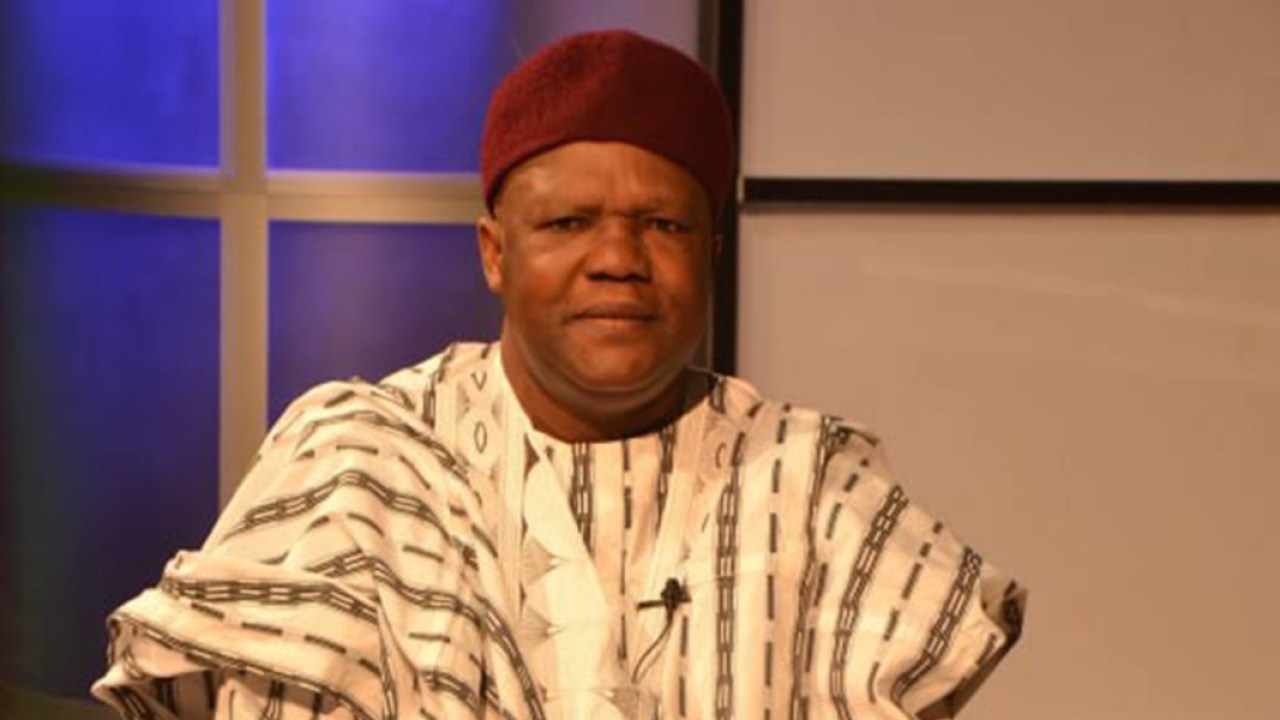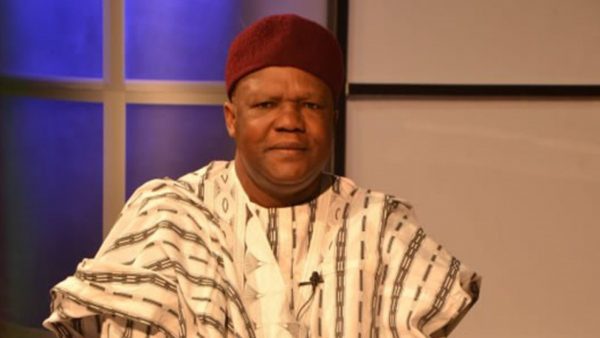Mailafia was born on 24 December 1956 in the village of Randa in the Sanga Local Government Area of Kaduna State. His father Baba Mailafia Gambo Galadima was an Evangelist with the Evangelical Reformed Church of Central Nigeria (ERCC). Mailafia was raised as a missionary child in a multiracial environment. His parents later transferred to Murya, Lafia, in Nasarawa State, where he grew up.
Read more about Nigerians In History
He started his elementary education at Musha Sudan United Mission School from 1964 to 1969 and proceeded to Mada Hills Secondary School, Akwanga from 1970 to 1974. He was a keen sportsman, debater and scholar; winning the Commissioner of Education’s Award as the most outstanding pupil of the graduating class of 1974.
For his ‘A-Levels, he attended the School of Basic Studies (SBS) at Ahmadu Bello University, Zaria, between 1974 and 1975. He later graduated top of his class at Ahmadu Bello University, Zaria, in 1978 with a B.Sc. Honours Social Sciences degree (Politics, Economics and Sociology). He also has an M.Sc. from the same institution. He subsequently won a French Government Scholarship to France, where he earned a Certificate in French Language and Civilization from the University of Clermont-Ferrand in 1985.
In 1986 he also earned the Diplôme (equivalent to an M.Phil.) in International Economics from the Institut International d’Administration Public (IIAP), the international wing and sister institution of the prestigious École Nationale d’Administration (ENA) of France.
Mailafia later proceeded to the United Kingdom as a Foreign and Commonwealth Office (FCO) Scholar at Oriel College, earning a DPhil from the University of Oxford in 1995.
Career
Mailafia began his career teaching Government and Economics at Akoko Anglican Grammar School, Arigidi-Ikare in Ondo State, Nigeria between 1978 and 1979 as part of his primary assignment during his obligatory National Youth Service Corps year. After national service, he returned to his old alma mater, Ahmadu Bello University, as a Graduate Assistant in the Faculty of Arts and Social Sciences from 1980 to 1982. During this period he lectured undergraduates and was also Research Assistant to Professor Ibrahim Gambari, who later became Foreign Minister and subsequently United Nations adviser for Political Affairs.
From 1982 to 1989, Mailafia was a Fellow and sometime Acting Research Director of the National Institute for Policy and Strategic Studies (NIPSS). He was on the team that prepared a special report on Local Government Reforms during 1982–1983. He also co-authored a report on the Maitatsine Religious Riots that formed the bedrock of the government’s response to the crisis (1984).
In collaboration with Professors Adedotun Phillips and Eghosa Osagie, he prepared several technical papers advising the Nigerian government on economic policy and macroeconomic reforms. He served on a committee that advised the Federal Military Government on a peaceful approach to the Nigeria-Cameroon Bakassi Peninsula Dispute. It helped in avoiding a catastrophic war between the two neighbouring countries.
Sign up to the Connect Nigeria daily newsletter
At the National Institute, he came under the mentorship of illustrious Nigerians who have spurred his interests in public service: Chief Simeon Adebo, Pius Okigbo, Eme Awa, Olikoye Ransome-Kuti, Gidado Idris, Akinola Aguda, Moshood Kashimawo Abiola and Claude Ake.
From 1990 to 1995, Mailafia was a resident tutor and lecturer in the economics and politics of developing areas at Plater College Oxford at the time an associate college of the University of Oxford. During 1995–1996 he was an assistant professor at New England College, Arundel, the foreign academic programme of New England College. He was subsequently a lecturer in international finance at Richmond Business School, the American International University in London (1997–1998). He was then headhunted as the pioneer Head of the International Business Department of Regents Business School London (1998–2000).
From 2001 to 2005, Mailafia served as a chief economist in the Strategic Planning and Budgeting Department of the African Development Bank Group. He served both in Abidjan and in Tunis when the bank was temporarily relocated to Tunisia. In this capacity, he was on several missions throughout Africa to supervise projects in power and infrastructures, agriculture industry. He was also the task manager for coordinating grants to research institutions throughout Africa, including such institutions as the Council for Social Science Research (CODESRIA), African Economic Research Consortium (AERC) and the African Capacity Development Foundation (ACBF).
He drafted the Concept Note that was later adopted by the board of the AfDB, leading to the establishment of New Partnership for Africa’s Development (NEPAD) and was also a Member of the AfDB and the United Nations Economic Commission of Africa (UNECA) Joint Committee that provided technical support to the steering committee of the heads of state and government on the establishment of NEPAD and its secretariat.
Mailafia was secretary to the senior management committee and special negotiating team for the Ninth Replenishment of the African Development Fund and a member of the task force for the joint management of the HIPC Trust Fund, in coordination with the World Bank and the International Monetary Fund (IMF).
From 2005 to 2007, Mailafia was recalled home from the African Development Bank to serve as Deputy Governor of the Central Bank of Nigeria (CBN). In this capacity, he served as a member of the board of directors of the bank and was principally responsible for managing monetary policy, economic policy, research and statistics and liaison with regional and international bodies, including the IMF and the World Bank.
He was a principal actor in the banking consolidation exercise of 2005–2006 that led to the reform of the Nigerian banking sector. He oversaw the reduction of the number of commercial banks, through mergers and acquisitions, from 89 to 25 consolidated banks; an exercise that was widely regarded as one of the most successful such efforts anywhere in the developing world in recent times. He was also an active participant in the negotiations that led to Nigeria negotiating its way out of the Paris Club group of indebted nations.
Political career
Mailafia ran for the presidency of the Federal Republic of Nigeria in the 2019 presidential elections under the platform of the African Democratic Congress (ADC). He was persuaded to enter politics after the famous historic “handshake” by the coalition of the Middle Belt Forum (MBF) and the South Afenifere of Yoruba land, Ohanaeze Ndigbo and PANDEF of Niger Delta.
Death
Mailafia died, from Covid-19 on the 19th of September 2021 at the National Hospital, Abuja, Nigeria.
Reference:
www.wikipedia.org
Punchng.com.
Infomediang.com.
Featured Image Source: The Guardian NG
Got a suggestion? Contact us: [email protected]


